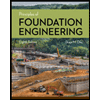Problem 2 - For a homework problem in ENGR 315 Sparky had to determine the velocity profile of a fully-developed laminar Newtonian fluid through an annulus that has a pressure gradient in the direction of flow (z direction). Unfortunately Sparky's dog ate the homework solution except for the page with the final solution. Sparky remembers the starting equations were the mass conservation and Navier-Stokes equations. The final solution Sparky remembers was the following: d p v₂ (r) =. 4μ dr r² In r Help Sparky out by checking the solution shown above by using the mass conservation and Navier-Stokes equations and the appropriate boundary conditions. Is Sparky's solution correct? If Sparky's solution is incorrect what is the correct solution? The final solution once the integration constant equations are determined can be tedious. As a minimum define the velocity equations in terms of integration constants, the two equations used to determine the integration constants and document in words how the final solution would be determined. This should provide enough data to determine if Sparky's solution is correct or not. Only providing the response with respect to the correctness of the equation is not sufficient. Some justification is required.
Problem 2 - For a homework problem in ENGR 315 Sparky had to determine the velocity profile of a fully-developed laminar Newtonian fluid through an annulus that has a pressure gradient in the direction of flow (z direction). Unfortunately Sparky's dog ate the homework solution except for the page with the final solution. Sparky remembers the starting equations were the mass conservation and Navier-Stokes equations. The final solution Sparky remembers was the following: d p v₂ (r) =. 4μ dr r² In r Help Sparky out by checking the solution shown above by using the mass conservation and Navier-Stokes equations and the appropriate boundary conditions. Is Sparky's solution correct? If Sparky's solution is incorrect what is the correct solution? The final solution once the integration constant equations are determined can be tedious. As a minimum define the velocity equations in terms of integration constants, the two equations used to determine the integration constants and document in words how the final solution would be determined. This should provide enough data to determine if Sparky's solution is correct or not. Only providing the response with respect to the correctness of the equation is not sufficient. Some justification is required.
Engineering Fundamentals: An Introduction to Engineering (MindTap Course List)
5th Edition
ISBN:9781305084766
Author:Saeed Moaveni
Publisher:Saeed Moaveni
Chapter18: Mathematics In Engineering
Section: Chapter Questions
Problem 19P
Related questions
Question

Transcribed Image Text:Problem 2 - For a homework problem in ENGR 315 Sparky had to determine the velocity
profile of a fully-developed laminar Newtonian fluid through an annulus that has a pressure
gradient in the direction of flow (z direction). Unfortunately Sparky's dog ate the homework
solution except for the page with the final solution. Sparky remembers the starting equations
were the mass conservation and Navier-Stokes equations. The final solution Sparky
remembers was the following:
d p
v₂ (r) =.
4μ dr
r²
In
r
Help Sparky out by checking the solution shown above by using the mass conservation
and Navier-Stokes equations and the appropriate boundary conditions. Is Sparky's
solution correct? If Sparky's solution is incorrect what is the correct solution?
The final solution once the integration constant equations are determined can be tedious. As a
minimum define the velocity equations in terms of integration constants, the two equations used
to determine the integration constants and document in words how the final solution would be
determined. This should provide enough data to determine if Sparky's solution is correct or not.
Only providing the response with respect to the correctness of the equation is not sufficient.
Some justification is required.
Expert Solution
This question has been solved!
Explore an expertly crafted, step-by-step solution for a thorough understanding of key concepts.
Step by step
Solved in 2 steps with 1 images

Recommended textbooks for you

Engineering Fundamentals: An Introduction to Engi…
Civil Engineering
ISBN:
9781305084766
Author:
Saeed Moaveni
Publisher:
Cengage Learning

Residential Construction Academy: House Wiring (M…
Civil Engineering
ISBN:
9781285852225
Author:
Gregory W Fletcher
Publisher:
Cengage Learning

Principles of Foundation Engineering (MindTap Cou…
Civil Engineering
ISBN:
9781337705028
Author:
Braja M. Das, Nagaratnam Sivakugan
Publisher:
Cengage Learning

Engineering Fundamentals: An Introduction to Engi…
Civil Engineering
ISBN:
9781305084766
Author:
Saeed Moaveni
Publisher:
Cengage Learning

Residential Construction Academy: House Wiring (M…
Civil Engineering
ISBN:
9781285852225
Author:
Gregory W Fletcher
Publisher:
Cengage Learning

Principles of Foundation Engineering (MindTap Cou…
Civil Engineering
ISBN:
9781337705028
Author:
Braja M. Das, Nagaratnam Sivakugan
Publisher:
Cengage Learning

Solid Waste Engineering
Civil Engineering
ISBN:
9781305635203
Author:
Worrell, William A.
Publisher:
Cengage Learning,

Principles of Foundation Engineering (MindTap Cou…
Civil Engineering
ISBN:
9781305081550
Author:
Braja M. Das
Publisher:
Cengage Learning